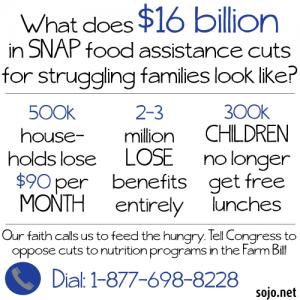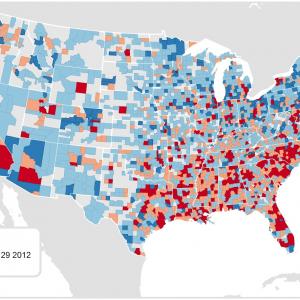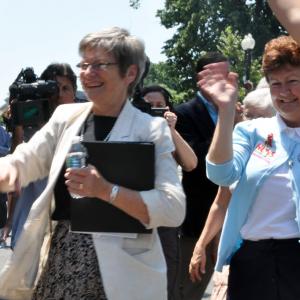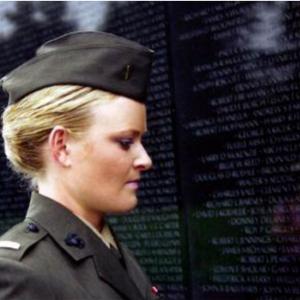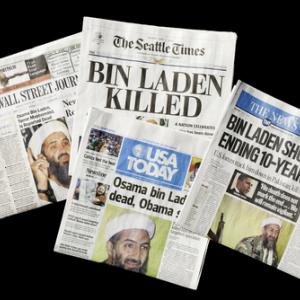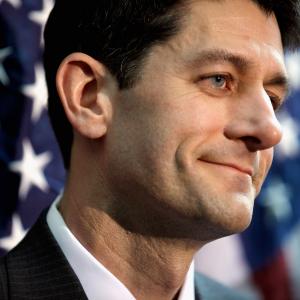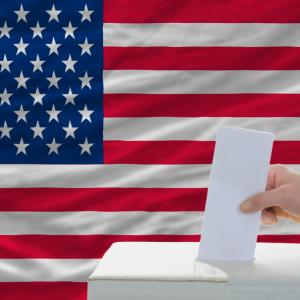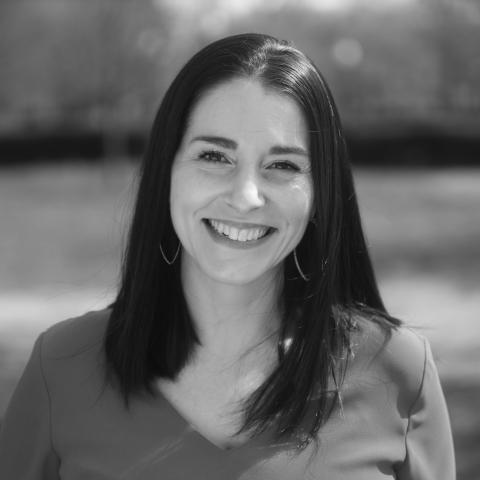
Sandi Villarreal is former editor-in-chief of Sojourners. She came to Sojourners in 2012 after starting her career in print newspaper reporting and veering quickly into digital media and online journalism. Sandi holds a master's degree in journalism from the Medill School of Journalism at Northwestern University and a bachelor's degree in journalism and political science from Baylor University. She has worked in both print and online journalism, publishing, digital marketing, and nonprofit community development.
Sandi is most interested in writing about the intersection of faith, politics, and culture, especially as it relates to women's leadership both within our churches and on the political stage. Sandi has earned awards for her news and commentary writing, as well as for her work as editor of Sojourners' online publication.
Posts By This Author
Cutting Assistance Programs Undermines the Church's Work
A common rationalization those in religious circles make for cutting social programs that help the poor is that church should be the one helping “the least of these,” not the government. But if we know that’s not possible given the church’s means, that millions will get left behind because our efforts fall far too short, is that still a logical line of defense? Jesus told us to care for the poor, sick, and vulnerable—he didn’t prescribe how.
Sometimes Jesus healed people one-on-one. Sometimes he addressed the needs of a multitude by providing enough food to feed them all. Sometimes he sent others in his stead to provide healing.
If we ignore the needy in our midst by getting rid of one huge way to address that need, we are not following Jesus’ example.
Charlotte, Tampa Mayors Talk Hosting Conventions
They have the two of the most stressful jobs in the country, at least for the next couple of months. Mayors Bob Buckhorn of Tampa, Fla., and Anthony Foxx of Charleston, N.C., will play host to the Republican and Democratic national conventions, respectively.
The two sat down with Politico's Chief White House Correspondent Mike Allen on Tuesday to discuss the challenges, economic opportunities, and politics of hosting such historic, national events.
"I don't look at this as a political event," Buckhorn said. "… Yes, I am a Democrat, but I intend to be the best host the Republicans have ever had."
North Carolina Continues to Ignore Science
According to the Atlantic Cities, lawmakers in North Carolina have chosen to ignore studies that show sea levels are rising faster than previously expected in favor of developing new housing along the coast.
According to the rerport, state Rep. Pat McElraft, a not-scientist, said in a floor debate that the state should assume sea levels will rise at the same rate they have in the past: 8 inches over the past century.
From Kelly Henderson's Switchboard blog post:
"The scientific findings that North Carolina coasts will likely experience a 39-inch sea-level rise created quite a stir and were challenged by NC-20, a coastal economic development group, who cited flaws in the research. The group fears losing dollars if coastal planning begins now to prepare for the 39-inch rise since over 2,000 coastal miles will become restricted to development."
And, from Mr. Colbert, on N.C.'s logic in only considering historical data:
"If we consider only historical data, I've been alive my entire life. Therefore, I always will be."
Sandi Villarreal is Associate Web Editor for Sojourners. Follow her on Twitter @Sandi.
QUIRK: Is Your Town Red or Blue?
A new map has divided the country into red and blue ... but this one has nothing do do with politics or the upcoming election. No, we're not talking Republicans or Democrats; we're talking Church or Beer. (Do the two have to be mutually exclusive? What if you're Lutheran?)
FloatingSheep.org compiled geotagged Tweets from June 22 - 28 comparing the geographic concentration of convos regarding church and beer.
A Happy Homecoming: Nuns on the Bus End Their Journey in D.C. (PHOTOS)
Hundreds of supporters were on hand to welcome home the Nuns on the Bus on Monday at the United Methodist Building in Washington, D.C. The sisters completed their nine-state, two-week journey for faith, family, and fairness in the federal budget.
"Some Catholic politicians are pushing budget cuts that violate Catholic social teaching," said Sister Simone Campbell, executive director for the Catholic lobbying group NETWORK. "And they jeopardize the Catholic sisters' effort to really help struggling families, to practice the values of the Gospel by serving the poor and vulnerable."
Top 10 Nora Ephron Moments: A Sojo Staff Tribute
The Sojo staff loves Nora Ephron. We already have up a contributor’s beautiful tribute to her life HERE. But we wanted to share our favorite N.E. moments. We also may or may not be planning a progressive dinner-movie party that will include: an appetizer of caviar and You’ve Got Mail, beef bourguignon (not it!) and Julie and Julia, dessert of pecan pie and When Harry Met Sally, and one really long curl of apple peel and Sleepless in Seattle.
But for now, Sojo staff’s top 10 Nora Ephron golden nuggets.
Men Can't Have It All, and Why They Never Did
Five of my female Facebook friends had posted the article in a span of about two hours. The headline, “Why Women Still Can’t Have It All,” stared at me, daring me to respond.
Read it, first. Then come back here. Go ahead, take the half-hour (it’s a long one). Read the WHOLE thing.
Back?
OK, so there are some good points in there, right? If you want to be a political power player in Washington, D.C., forcing you to live long-distance from your husband and children, maaaaybe you’re not going to be the happiest person ever. Maybe you can’t “have it all.”
But why is that the question to begin with? Why does this topic of conversation perennially rear it’s head to make women feel like they’re not doing it right? And why is the question never asked of men?
'The Invisible War' Sheds Light on Epidemic of Rape in the Military
Men and women in the military face numerous challenges when they return from combat—whether post-traumatic stress disorder, economic struggles, traumatic brain injury. A glimpse at the headlines tells us the grim statistics of active-duty suicides tied to these issues.
But a new film, The Invisible War, brings to light another staggering reality: a female soldier in a combat zone is more likely to be raped by another soldier than killed in enemy fire.
The Invisible War, which opens in some markets on June 22, takes on the military culture that has failed to address the problem.
Filmmakers Kirby Dick and Amy Ziering collected stories from sexual assault survivors across the country and show how hauntingly similar their the accounts are—from harassment to assault to lack of follow-up, and for some, blatant cover up. The powerful documentary pairs the survivors’ heartbreaking stories with alarming statistics illustrating the scope of the epidemic.
According to the Department of Defense, service members reported nearly 3,200 incidents of sexual assault in 2011.
Evangelical Leaders Announce Immigration Table Launch
Church leaders today gathered in Washington, D.C., to announce the launch of the Evangelical Immigration Table – a broad coalition of organizations, churches and pastors from across the political and religious spectrum coming together to advance a cohesive immigration reform message.
The Immigration Table was launched at a press conference, with speakers including Sojourners CEO Jim Wallis, Dr. Richard Land, President of the Ethics and Religious Liberty Commission, Gabriel Salguero, President of the National Association of Latino Evangelicals and Tom Minnery of Focus on the Family, setting out a common set of principles reflecting the common ground that all members of the Table have found on the issue of immigration.
Read on to view photos from the press conference.
Climate Change Affects Malawi Now
Climate change experts and skeptics can hash it out all they want, but Victor Mughogho is living it.
His home country of Malawi is already feeling the effects of climate change in real and devastating ways. Five droughts in the past 20 years, coupled with changing weather patterns, have resulted in famine — and a generation of children growing up developmentally stunted because of malnourishment.
10 Reasons Why I Don’t Know What Century I’m In
No, I didn’t hit my head. I’m not suffering from amnesia. I’m just really confused.
I’m sorry — what year is it again? Running through my handy list o’ headlines, it’s a little bit difficult to tell.
I give you the 10 reasons I don’t believe that it’s really 2012.
Violence Against Women Doesn't Discriminate
The House of Representatives passed on Wednesday a version of the Violence Against Women Act that would limit protections to immigrant, LGBT and American Indian abuse  victims. House Republicans argue that Democrats are politicizing a non-issue, but stating fact is not partisan politics.
victims. House Republicans argue that Democrats are politicizing a non-issue, but stating fact is not partisan politics.
The new version of the bill not only deletes new protections that received bipartisan support in the Senate, but also eliminates ones that existed in previous versions of the Act. For instance, the new version could make it more difficult for immigrants married to abusive U.S. citizens come forward for fear of losing their residency.
Womanhood and Discerning 'The Call'
I’ve moved five times in five years of marriage. My husband is a pastor. I am a journalist. He is forever discerning, forever visioning— I am forever antsy.
This latest move to Washington, D.C., led me to think a lot about the “call” to serve. My husband and I were dating, then engaged, then married during his four years at seminary. I suppose I knew what I was getting myself into. (Nope, not one little bit.)
During those years, it was drilled into my brain that even though I felt a “calling” as a writer, a storyteller, etc., it was extremely different from the call.
Read: What your husband is doing is more important than anything you will ever do in your lifetime — ever. Except maybe have his progeny, and then, still, it’s a toss-up.
One Year Later: Bin Laden and the Cycle of Violence
A year ago today, I read a Tweet that President Barack Obama was interrupting primetime TV to address the nation regarding terrorism. My heart dropped. All I could think about was that terrifying feeling 10 years earlier while watching 9-11 coverage. It only took about half an hour of speculation on 24-hour news stations, Twitter, Facebook, etc., before reports came out that Obama would be announcing the death of public enemy No. 1, Osama bin Laden.
My first reaction was relief. The second, I confess, was one of pride—shared by the nation at the time and many still. But at some point in the aftermath, I read a friend’s post that convicted me and brought me back to reality.
When a City Can't Afford an Election
If the GOP presidential primaries have been any indication, voter turnout for November's election could be fairly dismal. Between the uber-polarization of the parties and nationwide trend toward the middle at a voter level, many may opt to stay at home.
The lack of enthusiasm is especially evident in the youngest voting bloc, age 18-24. According to the latest from Public Religion Research and Georgetown University's Berkley Center, young adults are not exactly excited about their prospects of either political persuasion. Further, while one in six of them are registered to vote, only 46 percent plan to cast theirs in November.
But apart from the state of public discourse and apathy concerns of the weary voter, another issue is creeping up that could pose a problem for potential turnout—money.
According to The Atlantic Cities, some cities simply don't have the money—and have to cut elsewhere—to host an election.
"… municipalities are scrambling to pay the costs associated with manning polling places. Some have said they'll put off road repairs while transit crews work on Election Day. Others may borrow workers from other departments to help count votes. In practice, this will likely mean fewer voting precincts, shorter hours and longer lines."
In a culture that is not known for its patience or attention span, how will this trend affect the public's motivation, or lack thereof, to hit the polls in November?
Support Increasing for Gun Rights, Same-Sex Marriage
Attitudes on two controversial issues are shifting. There is more support for both gun rights and gay marriage in this election cycle than in the previous two, according to a new survey from Pew Research Center for the People & the Press.
Forty-seven percent support legal same-sex marriage, while 43 percent are opposed. Younger adults favor gay marriage by a 65 percent to 30 percent split.
The gun rights issue is equally split, with 49 percent saying it is more important to protect gun rights and 45 percent saying gun control is more important. The largest shift has been among African Americans, which represent a 13-point increase in favor of gun rights.
View the full survey results HERE.
Georgetown Faculty Challenge Ryan Budget
Rep. Paul Ryan is slated to speak at Georgetown University on Thursday morning. In the lead up, a group of professors and administrators is joining the chorus taking Ryan to task for claiming his budget proposal falls in line with Catholic teaching.
“Our problem with Representative Ryan is that he claims his budget is based on Catholic social teaching,” said Jesuit Father Thomas J. Reese, one of the organizers of the letter. “This is nonsense. As scholars, we want to join the Catholic bishops in pointing out that his budget has a devastating impact on programs for the poor.”
How Do We Engage Young Millennials?
As part of the rollout for "Millennial Values Survey" from Public Religion Research and the Berkley Center, I sat at Georgetown University and listened to a very long list of what pollsters think makes up college-age millennials. I’m in the right age bracket, but I couldn’t stop thinking about what a difference just a few years makes.
I’m part of the millennial generation, albeit at the high end of the spectrum. At 29, my attitudes and behaviors look completely different to those on the lower end. Part of it, of course, is phase of life. I’m a professional, married, with a few life experiences under my belt. Most of the respondents of the survey are in college or recently graduated—half live with their parents.
In discussing the survey results with a 23-year-old friend, we worked through both obvious and subtle differences. Some key characteristics of this cohort, and perhaps ways to engage them, surfaced.
Both Parties Have 'Work Cut Out For Them' Attracting Millennials
In a previous post about the recent ‘Millennial Values Survey,’ I pointed out that young millennials age 18-24 are becoming disillusioned with institutionalized religion.
It’s an anecdotal truth we’ve been throwing around quite a lot lately, but the survey proves the very clear reality that the newest generation of adults is checking the “unaffiliated” box at a rate of one in four.
But young adults aren’t just showing apathy for religion—it’s politics as well.
Young Millennials: Rethinking Religion
One in four young millennials (age 18-24) identify themselves as religiously unaffiliated—up from 11 percent in their childhood. But the distinguishing factor for this age group is that the “unaffiliated” label may stick with them into adulthood and beyond.
“This cohort is so dramatically different—racially, ethnically and religiously—it can’t help but change the character of our country,” Daniel Cox, director of research at Public Religion Research Institute, said at the presentation of the “Millennial Values Survey,” conducted by PRRI and Georgetown University’s Berkley Center for Religion, Peace and World Affairs.
In the past, young adults have tended to lapse in faith during their college years and twenties, only to return with age and family. Robert Jones, PRRI founder and CEO, said that’s not likely to happen as much with this age group.
“We’ve got to come up with some new measures of religion,” Jones said.
